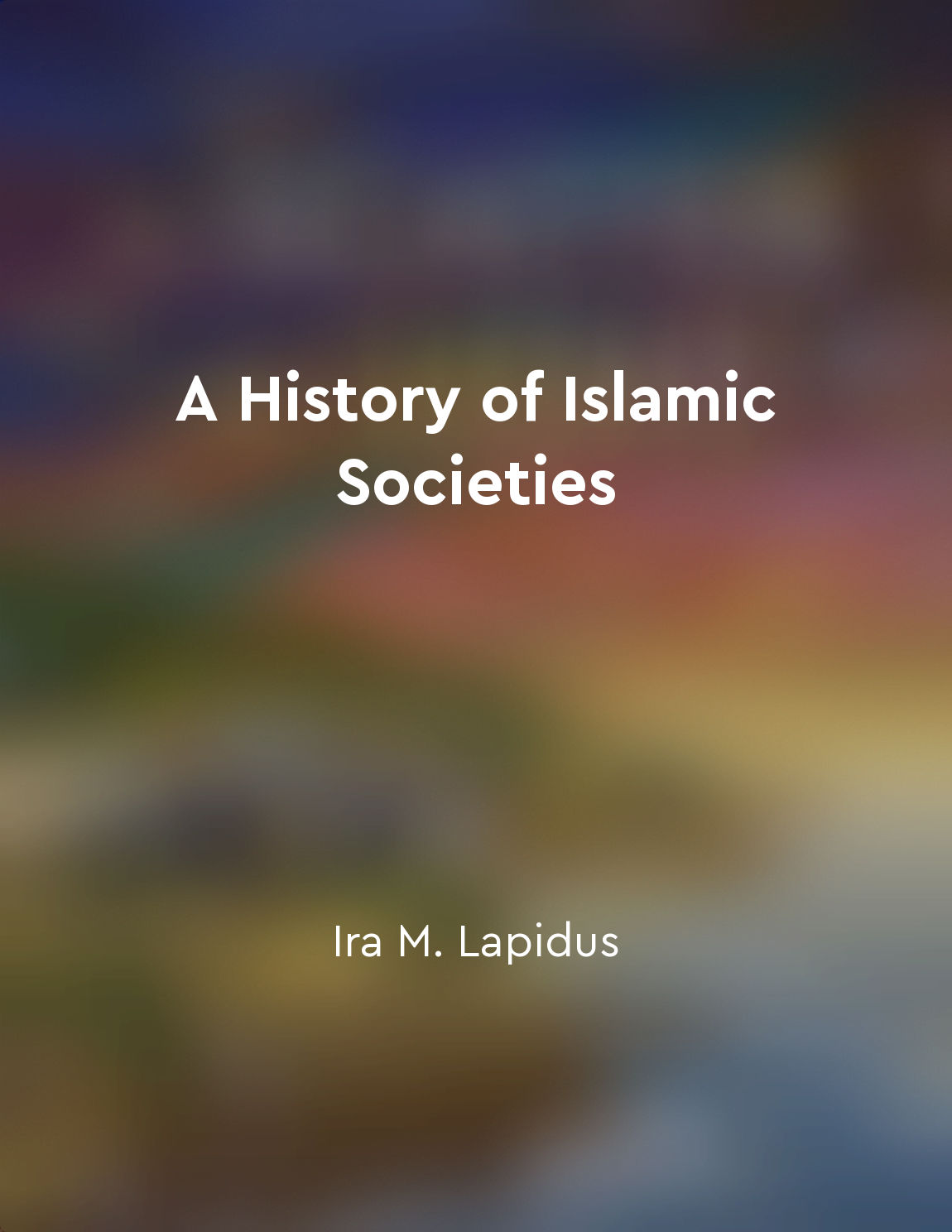The Abbasid Empire was a major force in shaping Islamic societies from "summary" of A History of Islamic Societies by Ira M. Lapidus
The Abbasid Empire played a crucial role in the development and shaping of Islamic societies. The empire, which lasted from the mid-eighth to the mid-thirteenth century, emerged after overthrowing the Umayyad dynasty in 750. Under Abbasid rule, Islamic societies experienced significant changes in various aspects of political, social, cultural, and economic life. One of the key contributions of the Abbasid Empire was the establishment of Baghdad as the capital city. Baghdad became a center of intellectual and cultural activity, attracting scholars, scientists, and artists from different parts of the world. The House of Wisdom, founded in Baghdad, served as a major hub for translation, education, and research, facilitating the exchange of knowledge between different cultures and civilizations. Furthermore, the Abbasid Empire promoted the development of Islamic law, known as Sharia, and Islamic theology, known as Kalam. The empire also witnessed the flourishing of Islamic literature, poetry, and architecture, which reflected the diverse cultural influences of the time. In addition to cultural achievements, the Abbasid Empire made significant advancements in trade, commerce, and agriculture. The empire's expansive trade networks connected regions from Africa to Asia, facilitating the exchange of goods, ideas, and technologies. This economic prosperity contributed to the growth of urban centers and the emergence of a vibrant merchant class within Islamic societies. Despite its cultural and economic achievements, the Abbasid Empire faced challenges such as internal strife, external invasions, and political fragmentation. The empire eventually declined, leading to the fragmentation of political power and the rise of regional dynasties.- The Abbasid Empire's legacy continues to shape Islamic societies to this day, influencing various aspects of religion, culture, politics, and economics. The empire's contributions to knowledge, art, and architecture have left a lasting impact on the development of Islamic civilizations, making it a major force in shaping the history of Islamic societies.
Similar Posts
Understanding hādīth origins enhances our appreciation of Islamic tradition
The origins of hādīth play a crucial role in deepening our understanding and appreciation of Islamic tradition. By delving into...
Tourism promotes crosscultural interactions
The movement of people for pleasure and exploration has a long and storied history. Tourism has been a vital part of human acti...
Modern India faces challenges of economic development and social inequality
In the recent past, India has made significant progress in terms of economic growth. However, this growth has not been evenly d...

The Abbasid Empire was a major force in shaping Islamic societies
The Abbasid Empire played a crucial role in the development and shaping of Islamic societies. The empire, which lasted from the...
Rise of the Roman Empire
The Roman Empire, which had already attained a high degree of power and civilization, continued to expand its dominions through...
Philosophy continues to evolve in response to cultural and scientific changes
The history of philosophy is a dynamic tapestry that is constantly being woven and rewoven in response to the cultural and scie...

